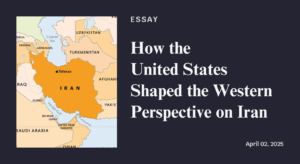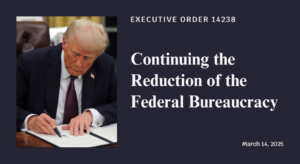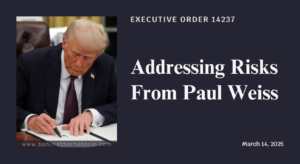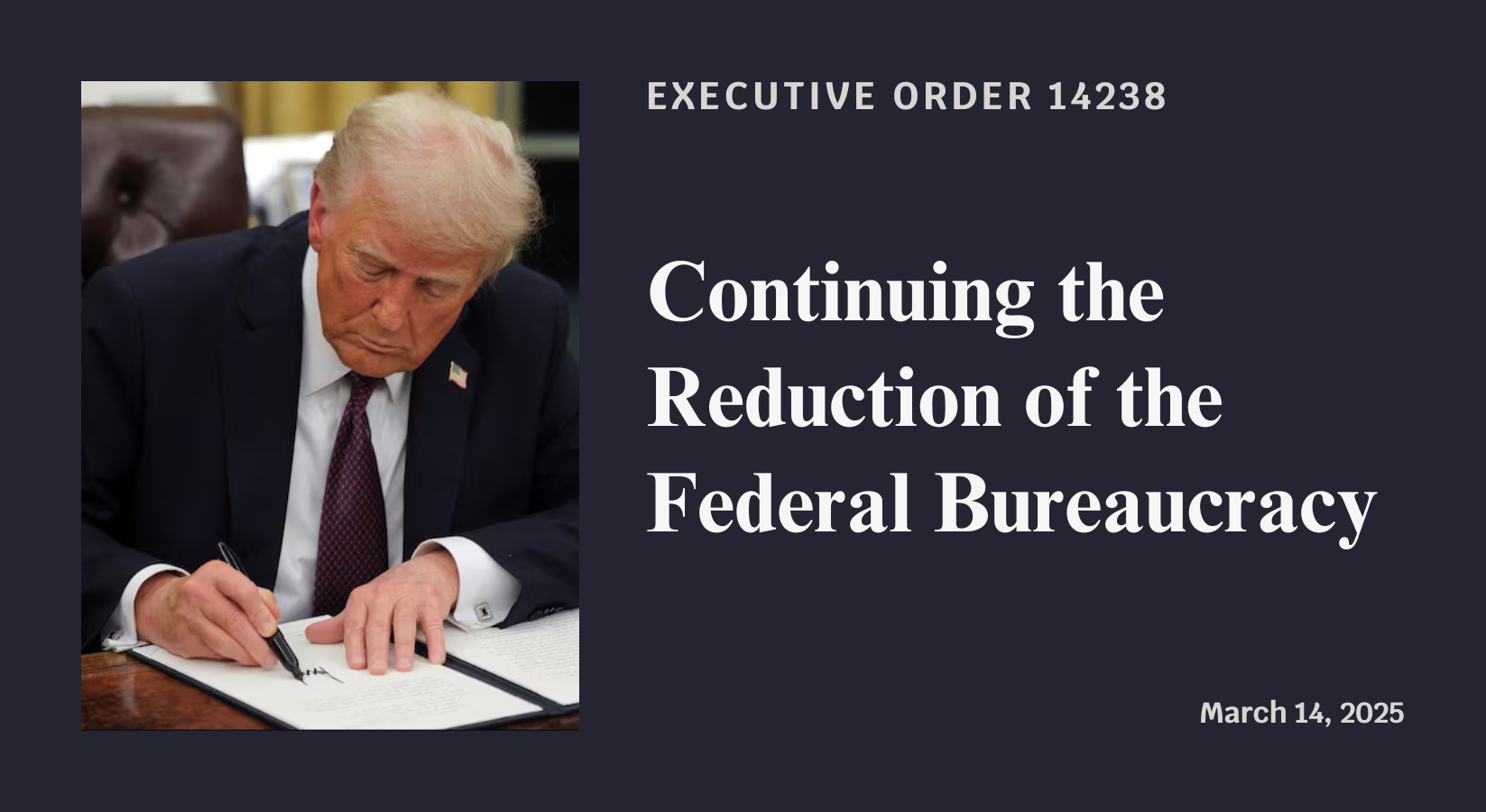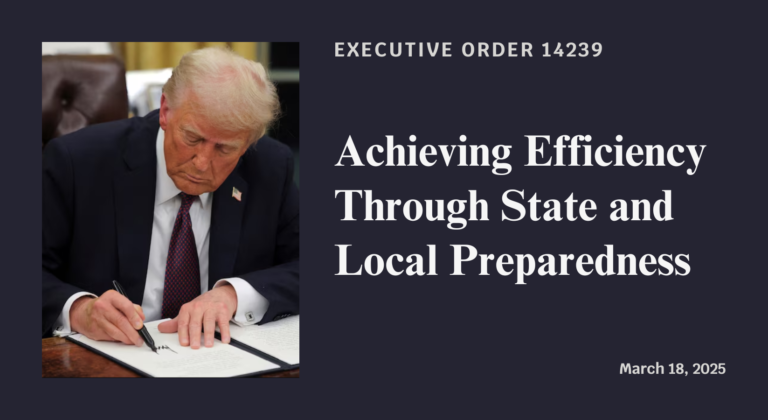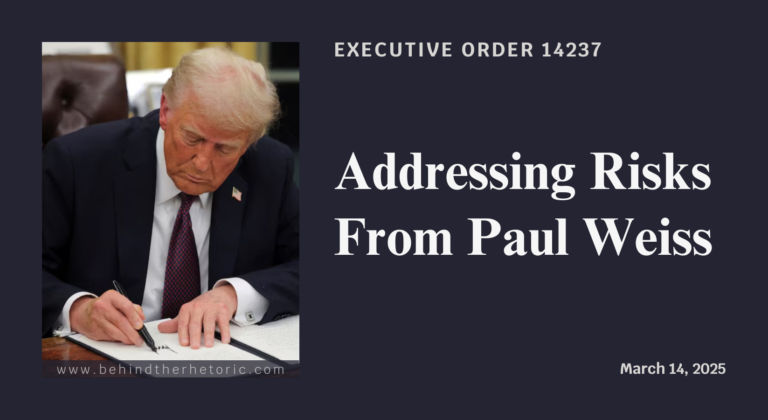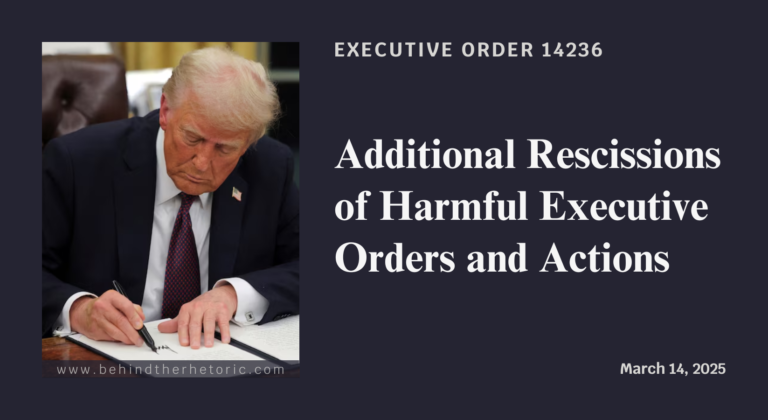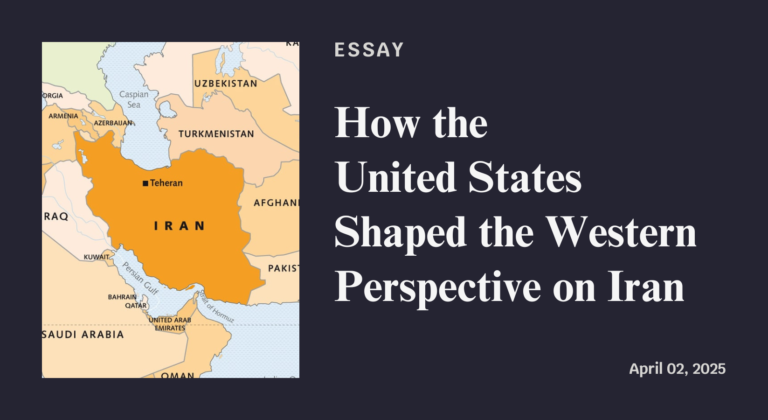Executive Order 14238
Continuing the Reduction of the Federal Bureaucracy
Signed on March 14, 2025
On March 14, 2025, President Trump signed Executive Order 14238, which directs the elimination of non-statutory components within several federal agencies and mandates that these entities minimize their statutory functions to the lowest level legally permissible. The order specifically targets agencies involved in mediation, public broadcasting, cultural institutions, economic development, and homelessness prevention.
🔗 Read the Executive Order on the Federal Register
🔗 Read the White House Announcement
What You Should Know
This order eliminates critical government functions under the guise of “efficiency.”
The executive order mandates the dismantling of non-statutory functions within agencies such as the Federal Mediation and Conciliation Service, the Institute of Museum and Library Services, and the Minority Business Development Agency. While framed as a reduction of bureaucracy, these cuts specifically target programs that provide conflict resolution, economic support for marginalized communities, and cultural preservation. Reducing these agencies to their bare minimum statutory roles means fewer resources for public mediation, minority-owned businesses, and access to libraries and museums.
Homelessness prevention and community development efforts will be severely undermined.
Among the agencies affected is the United States Interagency Council on Homelessness, which coordinates federal efforts to address homelessness. The order also targets the Community Development Financial Institutions Fund, which provides crucial financing for affordable housing and small businesses in underserved areas. Without these agencies functioning at full capacity, local governments and nonprofits will struggle to fill the gaps, leaving vulnerable populations with even fewer resources.
Public broadcasting and cultural institutions face existential threats.
The United States Agency for Global Media, which oversees federally funded international broadcasting, is set to have its non-statutory components dismantled. This move follows a pattern of right-wing efforts to defund public media and reduce access to independent journalism. Similarly, the Woodrow Wilson International Center for Scholars, a key research institution, and the Institute of Museum and Library Services, which funds public libraries and cultural programs, will be stripped of their ability to function beyond their most basic statutory requirements.
The order allows the Office of Management and Budget (OMB) to choke off funding.
The OMB is directed to reject budget requests for the affected agencies unless they align with the goal of reducing their function to the lowest legally permissible level. This means that even if these agencies still have statutory duties, their ability to carry them out will be hampered by severe funding restrictions, effectively rendering them incapable of fulfilling their missions.
The rapid timeline raises concerns about oversight and implementation.
The heads of the targeted agencies must submit compliance reports within seven days of the order, an unusually short timeframe for reviewing statutory requirements and restructuring operations. This rushed process increases the likelihood of chaotic implementation, workforce disruptions, and legal challenges as agencies attempt to determine what functions can legally be maintained.
Who Wins?
Right-wing politicians pushing for mass government downsizing
This order aligns with long-standing conservative efforts to shrink federal agencies, particularly those that support marginalized communities, public services, and cultural institutions. By gutting these agencies, the administration can claim a victory in its broader strategy of eliminating government programs it deems unnecessary or ideologically opposed to its agenda.
Private sector interests looking to capitalize on reduced government oversight
With the weakening of agencies that support economic development, community investment, and cultural institutions, private firms will have greater control over markets previously supported by public funding. This benefits large corporations and financial institutions that can step in to fill the void left by government agencies, often with fewer regulations and at a higher cost to consumers.
Anti-regulation and anti-public service ideologues
This order is a significant win for those who believe in dismantling the federal government’s role in social and economic development. Groups that have long pushed for deregulation and the defunding of public institutions now see a major step toward their goal of reducing government influence in these areas.
Who Loses?
Communities reliant on public investment and services
The agencies targeted by this order provide essential resources to underserved communities, including small business support, financial assistance for housing, and mediation services for labor disputes. By reducing these functions, low-income communities, minority-owned businesses, and those facing housing instability will have fewer opportunities for support and economic mobility.
Public libraries, museums, and cultural organizations
The Institute of Museum and Library Services provides funding that supports public libraries, local history museums, and educational programs across the country. Stripping this funding will disproportionately impact rural and low-income communities where these institutions serve as critical hubs for education and community engagement.
Journalistic and research institutions
The United States Agency for Global Media, which funds independent journalism abroad, and the Woodrow Wilson International Center for Scholars, a key research institution, face significant restrictions. This move aligns with broader attacks on publicly funded journalism and intellectual institutions, reducing access to independent information and academic research.
Efforts to combat homelessness and economic inequality
The elimination of non-statutory functions within the U.S. Interagency Council on Homelessness and the Community Development Financial Institutions Fund will weaken federal efforts to address housing insecurity and support economic development in struggling communities. Without these agencies’ full capacity, local organizations will have to take on a greater burden, often without the necessary funding.
This executive order represents a significant rollback of federal programs that support economic opportunity, public services, and cultural institutions. While framed as an effort to reduce bureaucracy, the agencies targeted for cuts are those that provide crucial support to underserved communities, small businesses, and public resources like libraries and museums. By stripping them of funding and authority, the administration is shifting the burden onto local governments and private organizations, many of which lack the resources to compensate for the loss of federal support.
The rushed timeline for implementation raises serious concerns about how these cuts will be enacted and whether agencies will be able to navigate legal and operational challenges in time. This order is not about efficiency—it is about eliminating public services that conservatives have long sought to dismantle, regardless of their importance to communities across the country.
Take Action
Advocate for funding and legal protections for the targeted agencies
Many of the affected agencies still have statutory obligations, and their funding can be restored through congressional action. Contact your representatives and urge them to oppose funding cuts that will harm public libraries, small businesses, homelessness prevention programs, and independent journalism.
Support organizations filling the gaps left by these cuts
Nonprofits and advocacy groups will need support to continue providing services that the government is now scaling back. Consider donating to or volunteering with organizations focused on economic development, homelessness prevention, public broadcasting, and library funding.
Stay informed and challenge misinformation
This order will be framed as a necessary step to reduce government waste, but the reality is that it disproportionately harms vulnerable populations and public institutions. Share accurate information about the impacts of these cuts and push back against efforts to justify them with misleading rhetoric.
Government programs that support small businesses, economic development, and public institutions should not be arbitrarily gutted under the pretense of efficiency. Stay informed, speak out, and demand accountability for policies that harm communities while benefiting corporate and political interests.
